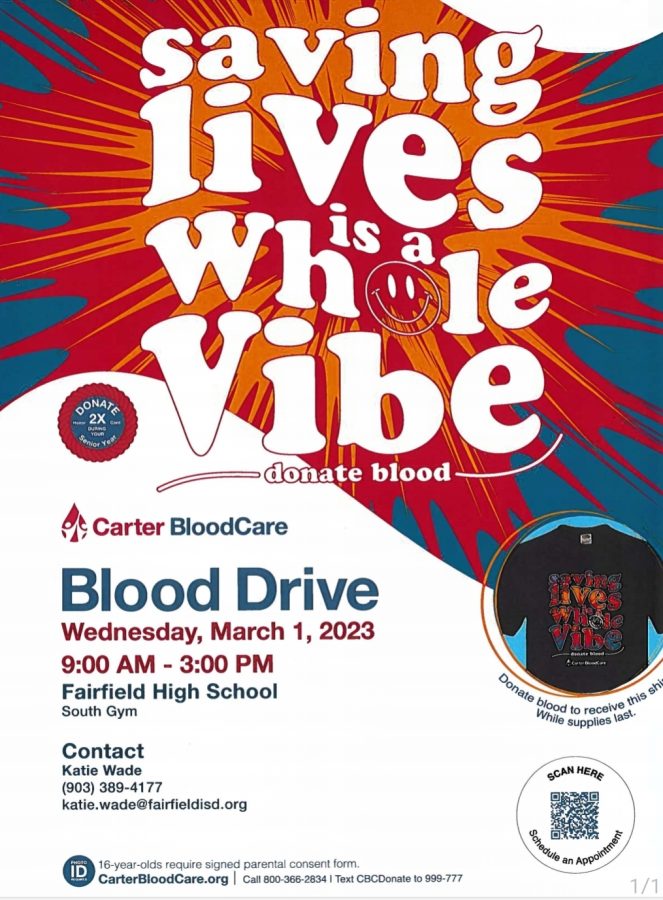Blood Drive
February 15, 2023
Student Council members will sponsor a blood drive on March 1 for any students over the age of 17 and students aged 16 with the permission of a parent.
“At the end of the year, the student council members and myself compile all the donations to create the red-cord list for seniors,” science teacher and student council sponsor Katie Wade said. “We also pass out flyers to help with the advertisements.”
Wade helps organize and monitor the blood drive run so it runs smoothly and does not put anyone in danger.
“I often donate on my own time because it is hard to run the blood drive and donate,” Wade said. “The last time I donated was in August. I will donate again in March.”
In the last blood drive, around 60 students and staff volunteered and donated 80 units of blood.
“I thought of donating blood because I wanted to help someone that is in need and so I can get a cord when I graduate,” senior Adrianna Mendez said. “I thought that donating was a good experience besides passing out. I was told not to donate blood again because I passed out, but I’m looking forward to working the next blood drive.”
Every two seconds, someone in the U.S. needs blood. Blood drives are scheduled to collect blood and help patients of all ages with heart surgery, organ transplant, those battling cancer, burn victims, or any other accident. One person donating can save up to three lives.
“I want to donate to better the healthcare of people all around,” sophomore Nadia Rounds said. “Every little drop counts.”
Those choosing to donate should eat foods that contain a lot of iron, drink extra liquids, and get a good rest the day before. If you feel sick, don’t donate and wait for the next opportunity. Other tips for donating can be found on the Red Cross webpage.
https://www.redcrossblood.org/donate-blood/how-to-donate/common-concerns/first-time-donors.html


